Keynotes
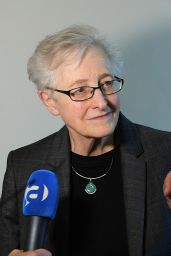
Prof. Marylin Strathern
Wednesday, 7 June 2023, 17:50-20:00 (CEST/Prague timezone)
OREA Congress Hotel Brno, Křížkovského 458, 603 73 Brno-střed
Uncertain relations: Limits and possibilities
Chair: Karolína Pauknerová
The convenors have set out the multivalent character of ‘uncertainty’ as at once opening up terrains riddled by catastrophe, reminding us of a quality of being lived with every day, and promising alternative paths and possibilities. This talk offers one way in which to key in to this complex field. It proposes to interrogate the notion of uncertainty through another multivalent notion, ‘relations’. Might our ability to perceive relations -- activate them, embody them and enquire with them -- help us acknowledge the role that uncertainty plays in our lives? Might thinking of relations as uncertain in their capacities and effects throw light on what we ask from knowledge practices in order to enlarge and/or shrink the world in which we live? From global crises to fieldwork encounters, presenting certain ways of thinking uncertainty through relations hopes to sketch something of the broader themes of this conference.
Marilyn Strathern is Emeritus Professor of Social Anthropology at Cambridge. Her research career began with work on kinship and gender relations, with a Melanesian emphasis, and she is best known for The gender of the gift (1988). She subsequently pursued anthropological approaches to assisted conception, intellectual property and audit cultures. While a recent book is Relations: an anthropological account (2020), her most sustained address to uncertainty (apropos the comparative method) is to be found in Partial Connections (1991).
Attribution: Carletti for Balzan Prize
Saturday, 10 June 2023, 15:00-16:00 (CEST/Prague timezone)
B2.13 with relay to C33, D22, B2.43, Faculty of Arts, Masaryk University, Arna Nováka 1
Teaching and Writing the Truth Today: Five Options
Chair: Jiří Woitsch
Bertold Brecht, wrote in his 1935 piece, Writing the Truth. Five Difficulties as follows: “It takes courage to say that the good were defeated not because they were good, but because they were weak.” In this talk I am exploring and analyzing the question, why are we so weak today even though we know that we are the good ones? We are losing the fight over defining values which is not an unfortunate accident. The recent rise of illiberalism and neo-fascism is not a natural catastrophe, it has its reasons and causes. And even earthquakes can be forecasted if one is attentive enough. During earthquakes, some well-built houses withstand the tremor, while others collapse. In my talk, I am interested in the reason for our sleepwalking, for our ignorance of the causes and reasons that lead to our becoming weak. We can only stop sleepwalking with a culture that comes from education. The talk discusses what education and educators can do today to write and teach the truth.
Andrea Pető is a historian and a Professor at the Department of Gender Studies at Central European University, Vienna, Austria, a Research Affiliate of the CEU Democracy Institute, Budapest, and a Doctor of Science of the Hungarian Academy of Sciences. Her works on gender, politics, Holocaust, and war have been translated into 23 languages. In 2018 she was awarded the 2018 All European Academies (ALLEA) Madame de Staël Prize for Cultural Values. She is Doctor Honoris Causa of Södertörn University, Stockholm, Sweden. Recent publications include: The Women of the Arrow Cross Party. Invisible Hungarian Perpetrators in the Second World War. Palgrave, Macmillan, 2020. And Forgotten Massacre: Budapest 1944. DeGruyter, 2021. She writes op-ed pieces for many international and national media about academic freedom and illiberal higher education.
Young Scholar Prize Lecture
Friday, 9 June 2023, 18:00-19:00 (CEST/Prague timezone)
B2.13, Faculty of Arts, Masaryk University, Arna Nováka 1
The prize is awarded for journal articles or independent book chapters (not from monographs such as dissertations) based on original research and published in refereed publications in the three years preceding the next SIEF congress.
Read more about the prize here.
Plenaries
Thursday, 8 June 2023, 15:00-16:15 (CEST/Prague timezone)
Scala University Cinema, Moravské nám. 127, 602 00 Brno-střed
Uncertain Terrains in the Everyday
Abstract
This plenary session is meant to address uncertainties that underpin our global situation in politics, health, and the environment, which to a great extent inform the current Zeitgeist, by relating to the myriad of ways in which such uncertainties impact our everyday. Ethnologists and folklorists alike have been able to address the various coping mechanisms with such uncertainties in everyday life, the meanings of these for individuals and societies as well as how these may be manipulated “strategically” or negotiated “tactically”. We shall also discuss the different scripts and narratives that emerge from and develop in reaction to current uncertainties – that range from attempts in providing sound explanations, through expressions of hope and creative solutions to those that reflect fear and feed anxieties. Finally, we shall reflect on the challenges our disciplines face in studying the uncertain in the everyday.
Plenary speakers (in alphabetical order)
- Michał Buchowski (Department of Anthropology and Ethnology at Adam Mickiewicz University, Poznan, Poland)
- Andrea Kitta (English Department, East Carolina University, USA)
Chair
Dani Schrire (Program for Folklore and Folk-Culture Studies, Cultural Studies, The Hebrew University of Jerusalem, Israel)
Friday, 9 June 2023, 11:15-13:00 (CEST/Prague timezone)
Scala University Cinema, Moravské nám. 127, 602 00 Brno-střed
Uncertainty and Methodologies
Abstract
Every day culture is in many cases a communal exploration of the unusual, the unexpected, the scary, risky, and frightening, a human response to experienced, imagined, narrated, and performed uncertainties (Ellis). When we lack trust in information, or have poor access, we turn to each other, communally negotiating uncertain situations by hybridizing present-day and inter-generational knowledge (Tangherlini).
Folklore and Ethnology, with their person- and practice-centred ethnographic approaches, offer some of the most powerful approaches to understanding this ‘tempting, treacherous border areas between the known and unknown parts of life’ (Palmenfelt). But how are our methodologies responsive to uncertainty? How can established ethnographic methods cope with and adapt to new challenges? What innovative approaches can we devise for highly fluid situations? As individuals confront and live with what is perceived as instability, how can our fields help us understand the mechanisms involved and, following an activist model, press them into service in building resilient communities?
Plenary speakers (in alphabetical order)
- Tatiana Bužeková (Department of Ethnology, Comenius University, Slovakia)
- Eerika Koskinen-Koivisto (Department of History and Ethnology, University of Jyväskylä, Finland)
- Kyrre Kverndokk (Cultural Studies Department of Archaeology, History, Cultural Studies and Religion, University of Bergen, Norway)
- Tim Tangherlini (Department of Scandinavian, University of California – Berkeley, USA)
Chair
Soňa Gyárfáš Lutherová (Institute of Ethnology and Social Anthropology, Slovak Academy of Sciences, Slovakia)
Saturday, 10 June 2023, 16:30-17:30(CEST/Prague timezone)
B2.13 with relay to C33, D22, B2.43, Faculty of Arts, Masaryk University, Arna Nováka 1
Closing roundtable - On the Precarity of Our Disciplines: Possible Ways Forward
Abstract
Precarity in and of our disciplines is a threat of which we are well aware and cannot ignore. We are privileged, as academics, but such privilege is distributed unevenly, leaving many posts and a growing number of scholars in precarious situations. This is mirrored in our fields of Ethnology, Folklore Studies, and Anthropology and, on a larger scale, in the Social Sciences and Humanities as a whole. Precariousness on both individual and disciplinary levels is renewed and strengthened by the normalisation of uncertainty through unreliable and inconsistent funding mechanisms, omnipresent audit cultures, short-term contracts, etc. At times, the growing precarity of our disciplines might seem inevitable, but it need not be like this.
The aim of the roundtable is to generate ideas on how to counter the trend of growing academic precarity. We aspire to seek possible ways forward, looking to build more resilient pathways for new scholars.
Closing plenary speakers (in alphabetical order)
- Čarna Brković (Georg-August-Universität Göttingen, Germany)
- Martin Fotta (Czech Academy of Sciences, Czech Republic)
- Roger Norum (University of Oulu, Finland)
- Clara Saraiva (University of Lisbon, Portugal)
Chair
Monique Scheer (University of Tübingen, Germany)
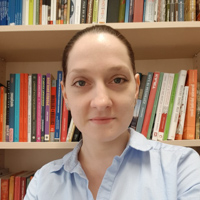 Čarna Brković is Associate Professor in Cultural Anthropology and European Ethnology at the University of Mainz. She obtained BA in Ethnology and Anthropology from the University of Belgrade and PhD in Social Anthropology from the University of Manchester.
Čarna is currently completing a book manuscript on how the transformation from Yugoslav socialism to neoliberal capitalism changed the meaning and practice of humanitarianism in Montenegro.
Čarna Brković is Associate Professor in Cultural Anthropology and European Ethnology at the University of Mainz. She obtained BA in Ethnology and Anthropology from the University of Belgrade and PhD in Social Anthropology from the University of Manchester.
Čarna is currently completing a book manuscript on how the transformation from Yugoslav socialism to neoliberal capitalism changed the meaning and practice of humanitarianism in Montenegro.
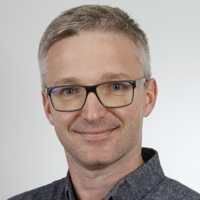 Martin Fotta is a researcher at the Institute of Ethnology at the Czech Academy of Sciences. He is one of the cofounders of the PrecAnthro Collective (2016). For the PrecAnthro and EASA he co-authored a report on changes to the academic profession and the casualisation of labour in Europe entitled ‘The Anthropological Career in Europe: A Complete Report on the EASA Membership Survey’. In 2021, Martin received a ‘Lumina quaeruntur’ award by the Czech Academy of Sciences. The award has enabled him to establish a research team with whom he works on a project entitled ‘Roma Atlantic: Transcontinental Logics of Ethno-Racial Identities.’
Martin Fotta is a researcher at the Institute of Ethnology at the Czech Academy of Sciences. He is one of the cofounders of the PrecAnthro Collective (2016). For the PrecAnthro and EASA he co-authored a report on changes to the academic profession and the casualisation of labour in Europe entitled ‘The Anthropological Career in Europe: A Complete Report on the EASA Membership Survey’. In 2021, Martin received a ‘Lumina quaeruntur’ award by the Czech Academy of Sciences. The award has enabled him to establish a research team with whom he works on a project entitled ‘Roma Atlantic: Transcontinental Logics of Ethno-Racial Identities.’
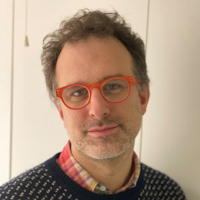 Roger Norum is Associate Professor of Cultural Anthropology at the University of Oulu, Finland, where he is Deputy Director of the Biodiverse Anthropocenes research programme. His research focuses on linkages between environment, infrastructure and mobility, primarily among transient communities in the Arctic and Asia.
Roger Norum is Associate Professor of Cultural Anthropology at the University of Oulu, Finland, where he is Deputy Director of the Biodiverse Anthropocenes research programme. His research focuses on linkages between environment, infrastructure and mobility, primarily among transient communities in the Arctic and Asia.
He is founding editor of Palgrave’s ‘Arctic Encounters’ book series and is chair of the World Congress of Environmental History, to be held in August, 2024 in Oulu.
 Clara Saraiva (PhD 1999) is a social and cultural anthropologist, a senior researcher at the Institute for the Social Sciences, University of Lisbon (ICS-UL). She was a Visiting Professor at University of California Berkeley (2013), Brown University (2001–02 and 2008) and a Research Fellow at the Watson Institute for International Studies at Brown (2001–02 and 2008). She works on the anthropology of religion and ritual, death, medical anthropology, and religion and heritage. She was PI on the HERA project HERILIGION, analysing relations between religion and heritage. She is the President of the Association of Portuguese Anthropology (APA), a board member of the World Council of Anthropological Associations (WCAA), a board member of the WCAA Ethics Task Force, and a past vice-president of the Society for International Ethnology and Folklore (SIEF).
Clara Saraiva (PhD 1999) is a social and cultural anthropologist, a senior researcher at the Institute for the Social Sciences, University of Lisbon (ICS-UL). She was a Visiting Professor at University of California Berkeley (2013), Brown University (2001–02 and 2008) and a Research Fellow at the Watson Institute for International Studies at Brown (2001–02 and 2008). She works on the anthropology of religion and ritual, death, medical anthropology, and religion and heritage. She was PI on the HERA project HERILIGION, analysing relations between religion and heritage. She is the President of the Association of Portuguese Anthropology (APA), a board member of the World Council of Anthropological Associations (WCAA), a board member of the WCAA Ethics Task Force, and a past vice-president of the Society for International Ethnology and Folklore (SIEF).





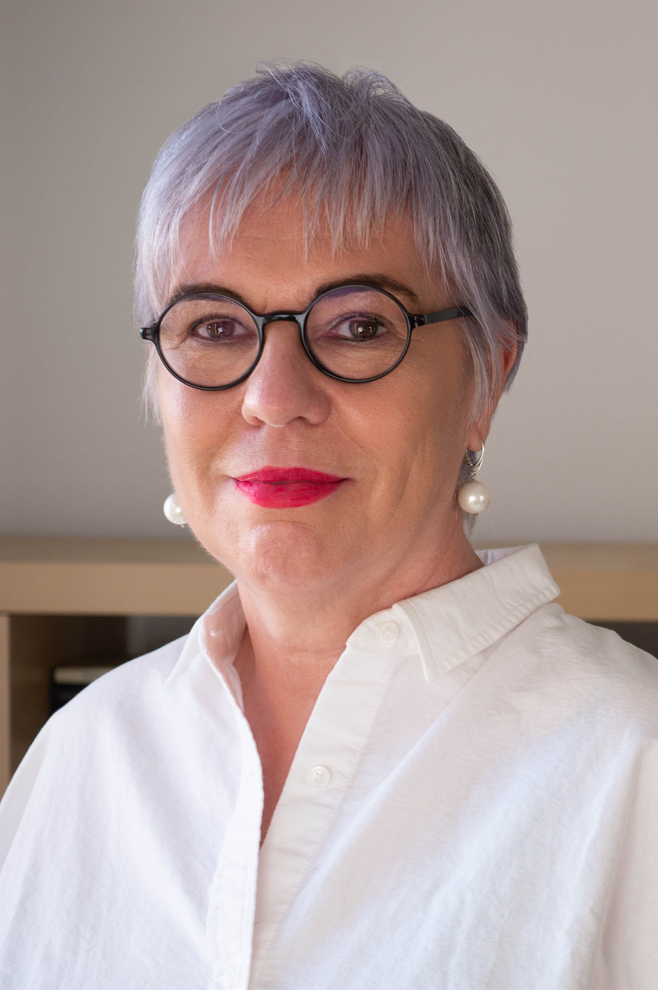
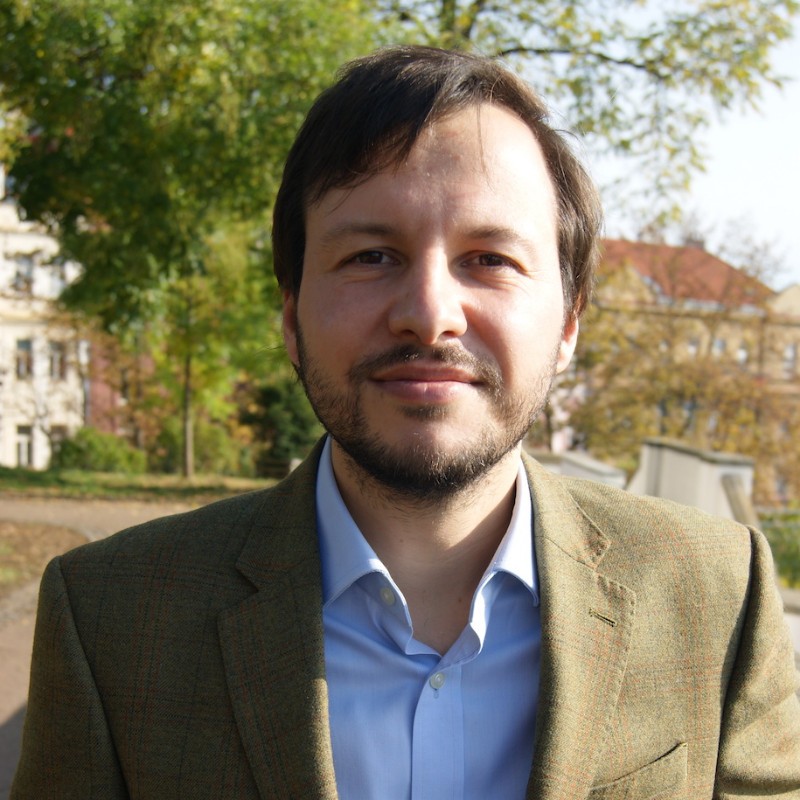 Nikola Balaš won the SIEF Young Scholar Prize 2023 for his article Through a peephole: Vladimír Karbusický, the secret police and the scholarly ethos in socialist Czechoslovakia in "History and Anthropology 2022". The article is a case study based on analysing a dossier that the Czechoslovak secret police created in the 1960s on the Czech folklorist Vladimír Karbusický. In the 1960s, Karbusický established fruitful contacts with ethnographers abroad, among whom was Gerhardt Heilfurth, a West German ethnographer. This connection aroused the interest of the secret police. They feared that Karbusický might be a West German agent and began to monitor his private and professional life. The subsequent surveillance is a remarkable testimony of the incursion of the secret police into the scholarly world. It shows how the police’s actions diminished the autonomy of the scholarly world, influenced career paths and contributed to the formation of academic habitus. However, the dossier can be also read as a testimony of a persisting academic autonomy. It suggests that the Communist Party and the secret police were not entirely successful in their aims to control society. Furthermore, it even seems as if the secret police served ethnographers as a tool for paying off their own scores.
Nikola Balaš won the SIEF Young Scholar Prize 2023 for his article Through a peephole: Vladimír Karbusický, the secret police and the scholarly ethos in socialist Czechoslovakia in "History and Anthropology 2022". The article is a case study based on analysing a dossier that the Czechoslovak secret police created in the 1960s on the Czech folklorist Vladimír Karbusický. In the 1960s, Karbusický established fruitful contacts with ethnographers abroad, among whom was Gerhardt Heilfurth, a West German ethnographer. This connection aroused the interest of the secret police. They feared that Karbusický might be a West German agent and began to monitor his private and professional life. The subsequent surveillance is a remarkable testimony of the incursion of the secret police into the scholarly world. It shows how the police’s actions diminished the autonomy of the scholarly world, influenced career paths and contributed to the formation of academic habitus. However, the dossier can be also read as a testimony of a persisting academic autonomy. It suggests that the Communist Party and the secret police were not entirely successful in their aims to control society. Furthermore, it even seems as if the secret police served ethnographers as a tool for paying off their own scores.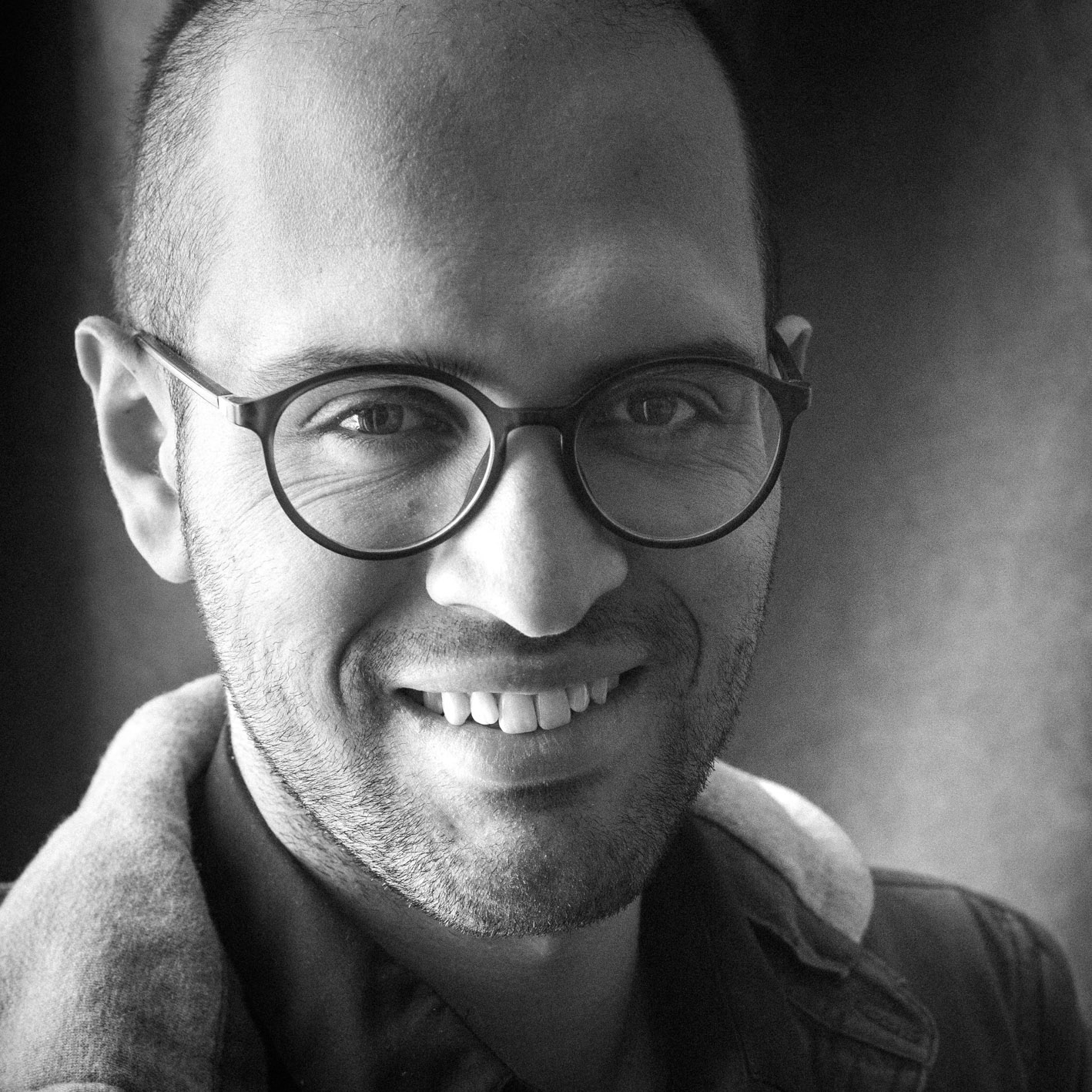 Camilo Leon-Quijano won the SIEF Young Scholar Prize 2023 for his article
Camilo Leon-Quijano won the SIEF Young Scholar Prize 2023 for his article 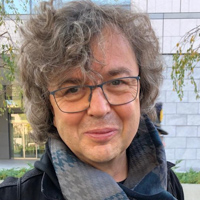 Michał Buchowski is a Professor and Head of the Department of Anthropology and Ethnology at Adam Mickiewicz University, Poznan, and Professor Senior at European University Viadrina in Frankfurt/Oder. Former President of Polish Ethnological Society, and European Association of Social Anthropologists, as well as Chair of World Council of Anthropological Associations. Honorary Fellow of the Royal Anthropological Institute of Great Britain and Ireland. Member of the Polish Academy of Sciences. He works on anthropology of postsocialism, and othering of immigrants and minorities. He authored and edited several books, most recently Purgatory. Anthropology of postsocialist neoliberalism (2017, in Polish), and Twilight Zone Anthropology: Voices from Poland (ed., 2019).
Michał Buchowski is a Professor and Head of the Department of Anthropology and Ethnology at Adam Mickiewicz University, Poznan, and Professor Senior at European University Viadrina in Frankfurt/Oder. Former President of Polish Ethnological Society, and European Association of Social Anthropologists, as well as Chair of World Council of Anthropological Associations. Honorary Fellow of the Royal Anthropological Institute of Great Britain and Ireland. Member of the Polish Academy of Sciences. He works on anthropology of postsocialism, and othering of immigrants and minorities. He authored and edited several books, most recently Purgatory. Anthropology of postsocialist neoliberalism (2017, in Polish), and Twilight Zone Anthropology: Voices from Poland (ed., 2019). Dr. Andrea Kitta is a folklorist with a specialty in medicine, belief, and the supernatural. She is also interested in Internet folklore, narrative, and contemporary (urban) legend. Her current research includes: vaccines, pandemic illness, contagion and contamination, stigmatized diseases, disability, health information on the Internet and Slender Man. Dr. Kitta is the recipient of the Bertie E. Fearing Award for Excellence in Teaching (2010-2011), received a Teacher/Scholar award from ECU (2015-16) and the Board of Governors Distinguished Professor for Teaching Award (2018-2019). Her monograph, Vaccinations and Public Concern in History: Legend, Rumor, and Risk Perception, won the Brian McConnell Book Award in 2012. Her monograph The Kiss of Death: Contagion, Contamination, and Folklore won the Chicago Folklore Prize and Brian McConnell Book Award in 2020. She is currently working on an edited collection about conspiracy theories and researching the COVID-19 pandemic and Long Covid.
Dr. Andrea Kitta is a folklorist with a specialty in medicine, belief, and the supernatural. She is also interested in Internet folklore, narrative, and contemporary (urban) legend. Her current research includes: vaccines, pandemic illness, contagion and contamination, stigmatized diseases, disability, health information on the Internet and Slender Man. Dr. Kitta is the recipient of the Bertie E. Fearing Award for Excellence in Teaching (2010-2011), received a Teacher/Scholar award from ECU (2015-16) and the Board of Governors Distinguished Professor for Teaching Award (2018-2019). Her monograph, Vaccinations and Public Concern in History: Legend, Rumor, and Risk Perception, won the Brian McConnell Book Award in 2012. Her monograph The Kiss of Death: Contagion, Contamination, and Folklore won the Chicago Folklore Prize and Brian McConnell Book Award in 2020. She is currently working on an edited collection about conspiracy theories and researching the COVID-19 pandemic and Long Covid. Senior Lecturer Dani Schrire is a folklorist (PhD The Hebrew University 2012) with postdoctoral research carried out at the Institute for Cultural Anthropology / European Ethnology, Göttingen and the Katz Center for Advanced Judaic Studies at the University of Pennsylvania. His research interests include Jewish folkloristics in international networks, walking as cultural and political practice, folklore archives and collecting and postcards of the Holy Land in times of upheaval. He authored a monograph titled, Collecting the Pieces of the Jewish Diaspora: Zionist Folkloristics Facing the Shoah (2018, Hebrew)
Senior Lecturer Dani Schrire is a folklorist (PhD The Hebrew University 2012) with postdoctoral research carried out at the Institute for Cultural Anthropology / European Ethnology, Göttingen and the Katz Center for Advanced Judaic Studies at the University of Pennsylvania. His research interests include Jewish folkloristics in international networks, walking as cultural and political practice, folklore archives and collecting and postcards of the Holy Land in times of upheaval. He authored a monograph titled, Collecting the Pieces of the Jewish Diaspora: Zionist Folkloristics Facing the Shoah (2018, Hebrew)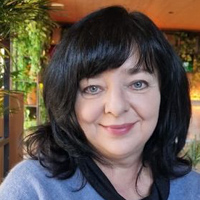 Tatiana Bužeková is an associate professor at the Department of Ethnology, Faculty of Arts, Comenius University in Bratislava. She has conducted long-term ethnographic research on folk narratives around misfortune and examine witchcraft-related beliefs from the perspective of cognitive anthropology. More recent interests include alternative spirituality, particularly neo-shamanism. She combined cognitive approaches to the study of tradition with the theoretical arsenal of medical anthropology. She is also interested in the concepts of collective memory and moral emotions. At present, she is involved in research projects on folk and religious beliefs.
Tatiana Bužeková is an associate professor at the Department of Ethnology, Faculty of Arts, Comenius University in Bratislava. She has conducted long-term ethnographic research on folk narratives around misfortune and examine witchcraft-related beliefs from the perspective of cognitive anthropology. More recent interests include alternative spirituality, particularly neo-shamanism. She combined cognitive approaches to the study of tradition with the theoretical arsenal of medical anthropology. She is also interested in the concepts of collective memory and moral emotions. At present, she is involved in research projects on folk and religious beliefs.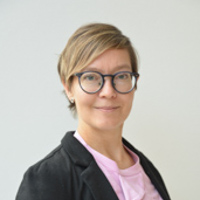 Eerika Koskinen-Koivisto is a Senior Researcher at the Department of History and Ethnology at the University of Jyväskylä, Finland. She is PI of the SENSOMEMO project (Academy of Finland) that explores affective materiality and human-object relationships. Her publications include articles in international journals (e.g., Narrative Culture, Ethnologia Europaea), a monograph Her Own Worth (Finnish Literature Society, 2014), and the co-edited volumes Routledge Handbook of Memory and Place (2019), Transnational Death (Finnish Literature Society, 2019), and Challenges and Solutions in Ethnographic Research: Ethnography with a Twist (Routledge 2020).
Eerika Koskinen-Koivisto is a Senior Researcher at the Department of History and Ethnology at the University of Jyväskylä, Finland. She is PI of the SENSOMEMO project (Academy of Finland) that explores affective materiality and human-object relationships. Her publications include articles in international journals (e.g., Narrative Culture, Ethnologia Europaea), a monograph Her Own Worth (Finnish Literature Society, 2014), and the co-edited volumes Routledge Handbook of Memory and Place (2019), Transnational Death (Finnish Literature Society, 2019), and Challenges and Solutions in Ethnographic Research: Ethnography with a Twist (Routledge 2020).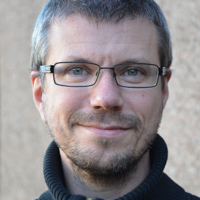 Kyrre Kverndokk is Professor of Cultural Studies at the Department of Archaeology, History, Cultural Studies and Religion, at the University of Bergen, Norway. He has published on topics such as the practice and politics of Second World War memory, the cultural history of natural disasters, and climate change temporalities. He has a special interest in folklore archives and is the PI of the digitization project, “SAMLA: National Infrastructure for Cultural History and Tradition Archives”. He is also the PI of the interdisciplinary project, “Gardening the Globe: Historicizing the Anthropocene through the Production of Socio-Nature in Scan-dinavia, 1750–2020”.
Kyrre Kverndokk is Professor of Cultural Studies at the Department of Archaeology, History, Cultural Studies and Religion, at the University of Bergen, Norway. He has published on topics such as the practice and politics of Second World War memory, the cultural history of natural disasters, and climate change temporalities. He has a special interest in folklore archives and is the PI of the digitization project, “SAMLA: National Infrastructure for Cultural History and Tradition Archives”. He is also the PI of the interdisciplinary project, “Gardening the Globe: Historicizing the Anthropocene through the Production of Socio-Nature in Scan-dinavia, 1750–2020”.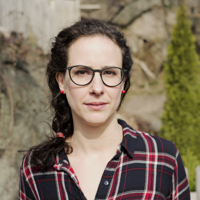 Soňa Gyárfáš Lutherová is a social and visual anthropologist and ethnologist, a Senior Researcher at the Institute of Ethnology and Social Anthropology, Slovak Academy of Sciences. She focuses on identities, family, individual and social memory, and the material culture of households. She is also interested in applying innovative and reflexive methods in ethnographic research. She has taught, carried out research, and studied at universities and research facilities in Slovakia, Sweden, the Czech Republic, and Austria. She is an author of numerous journal articles and monographs. She is the editor of the Slovak Ethnology scientific journal and is the author and director of the documentary films Flooded (AH production, Slovak Radio and Television, Slovak Film Institute, 2018) and A Happy Man (Azyl Production, Company F, HBO Max, 2023). She also focuses on the popularisation of scientific knowledge.
Soňa Gyárfáš Lutherová is a social and visual anthropologist and ethnologist, a Senior Researcher at the Institute of Ethnology and Social Anthropology, Slovak Academy of Sciences. She focuses on identities, family, individual and social memory, and the material culture of households. She is also interested in applying innovative and reflexive methods in ethnographic research. She has taught, carried out research, and studied at universities and research facilities in Slovakia, Sweden, the Czech Republic, and Austria. She is an author of numerous journal articles and monographs. She is the editor of the Slovak Ethnology scientific journal and is the author and director of the documentary films Flooded (AH production, Slovak Radio and Television, Slovak Film Institute, 2018) and A Happy Man (Azyl Production, Company F, HBO Max, 2023). She also focuses on the popularisation of scientific knowledge.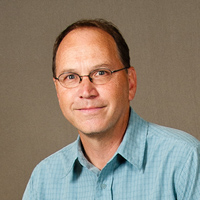 Tim Tangherlini is Professor in the Department of Scandinavian at the University of California – Berkeley, where he also serves as graduate advisor in the Folklore program. He has worked on computational approaches to stories and storytelling over the past three decades. Under the auspices of the National Science Foundation’s Institute for Pure and Applied Mathematics, he co-directed a program on Culture Analytics, as well as a National Endowment for the Humanities Institute on Network Analysis for the Humanities. He has done extensive fieldwork on storytelling among paramedics, and shamanism in South Korea, as well as archival work on rural nineteenth-century Denmark. His current work focuses on generative models of common story genres such as legend, rumour, personal experience narratives, and conspiracy theories.
Tim Tangherlini is Professor in the Department of Scandinavian at the University of California – Berkeley, where he also serves as graduate advisor in the Folklore program. He has worked on computational approaches to stories and storytelling over the past three decades. Under the auspices of the National Science Foundation’s Institute for Pure and Applied Mathematics, he co-directed a program on Culture Analytics, as well as a National Endowment for the Humanities Institute on Network Analysis for the Humanities. He has done extensive fieldwork on storytelling among paramedics, and shamanism in South Korea, as well as archival work on rural nineteenth-century Denmark. His current work focuses on generative models of common story genres such as legend, rumour, personal experience narratives, and conspiracy theories.